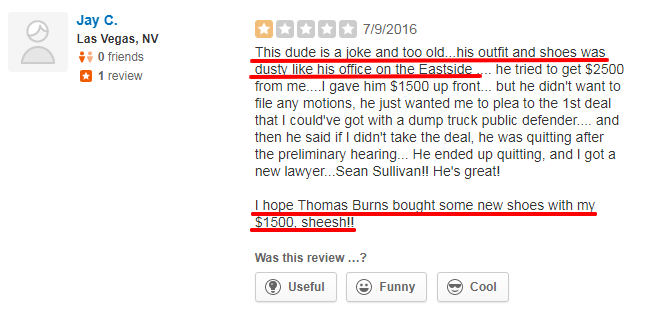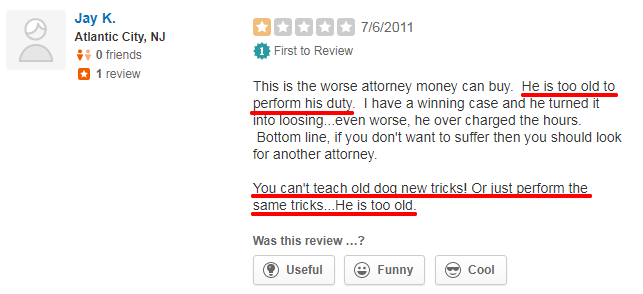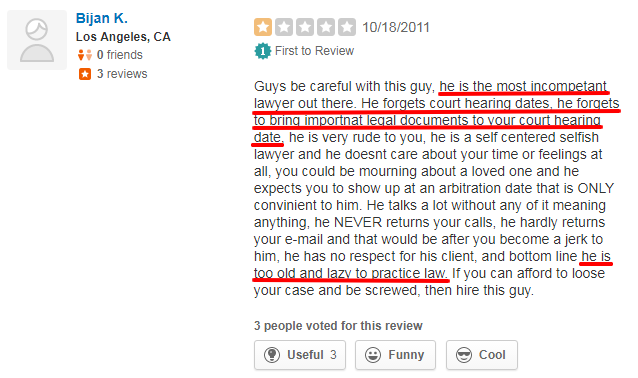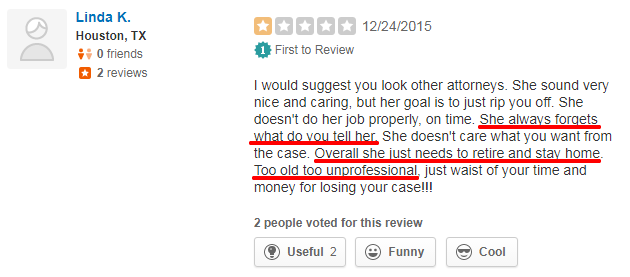
5 Challenges Older Solo Practitioners Face In the Legal Industry
09/11/2018 By Bill4Time Staff

It’s 2005.
Thirty-two partners at Sidley Austin, the sixth largest corporate law firm in the United States, have just been fired from their firm.
The reason?
These partners were allegedly too old. The firm downgraded their status, then told these partners they’d have to leave. The former partners filed an age discrimination lawsuit in response.
Sidley Austin eventually agreed to settle.
Ageism is alive and well for older solo practitioners
But it isn’t the only problem older attorneys face in the industry. Today older solo practitioners deal with a bevy of age-related issues. Challenges that make it harder for them to do what they’re best at.
Practicing law.
It’s unfair to those who are on the receiving end of these changes, but it’s also understandable. The “graying of the bar,” as pundits refer to it, is changing the legal landscape.
What challenges am I referring to?
Challenge #1: Clients, law firms want younger, cheaper talent
Youth is expendable.
It’s easier for law firms to make money off younger attorneys. They cost less money, increasing their firm’s profit margins. Their eager idealism means most are willing to work long hours for less pay and the promise of future opportunity.
Solo practitioners don’t fare much better.
On the other hand, older practitioners have significant experience. Their hourly rate is higher than their younger counterparts and they’re also much less willing to work long hours for less pay.
What does this mean?
Without a strong value proposition and a stable book of business, older solo practitioners will struggle to compete with their younger, more idealistic counterparts.
Challenge #2: Younger firms work harder
Younger attorneys are willing to run themselves into the ground.
Clients and firms use the promise of additional work/opportunities to motivate young attorneys to work hard on their own. These young solo practitioners are more willing to push for 3,500 billable hours each year to show their commitment.
This doesn’t automatically mean better quality work.
It just means these younger attorneys are willing to take on more work clients or their firm. for all we know, these billable hours could be focused on non-critical tasks.
Challenge #3: Cognitive decline
There’s an assumption that an increase in age automatically equals cognitive decline. But this actually isn’t the case for most people.
It’s actually a whole simpler.
For the most part, it’s about how you treat yourself. Research shows unhealthy habits have a detrimental impact on your cognitive performance. It isn’t so much about your age as it is about your habits compounding.
- Smoking accelerates a decline in memory and visual search
- Decades of poor sleep habits affect cognition and memory
- A high-stress environment decreases cognitive function in the short and long-term
- Poor diet affects both your cognitive performance and emotional well-being
This isn’t a groundbreaking revelation, is it?
Taking care of your body compounds over time. What we call old age, may actually be older practitioners reaping the rewards of their behavior for better or worse.
The good news?
These mistakes can be corrected for the most part. Even if you’re an older practitioner.
Challenge #4: Ageism and bias
ABA President Karen Mathis estimates more than 400,000 attorneys will consider retiring, retire or begin to retire over the next few years. This sounds like an opportunity and it is, but as we’ve seen, this process isn’t always voluntary. Law firms are under tremendous pressure to perform.
- Succession planning
- Downgraded status
- Mandatory retirement age limits
- Monetary limits (e.g. decompression policies)
These are all easy ways to force older, more costly practitioners out of firms.
This isn’t new.
The EEOC filed a lawsuit against Kelley Drye & Warren, LLP for age discrimination. In 2007, Winston & Strawn LLP settled a suit challenging their “decompression policy” that reduced partners’ pay after age 65. Here’s the surprising part about ageism.
Your clients struggle with it too.
The results aren’t as stark for solo practitioners but it still presents a problem.
Here see for yourself.




See the ageism?
Notice the problem with each of these reviews? They’re all negative reviews. What does this tell us? Clients struggle with ageism. Serve them well and they’ll never tell you.
This is bad news.
If you’re a solo practitioner and you’d like to remain competitive, you’ll need a strategy to follow. You’ll also need a way to deal with the bias and discrimination that comes with client pushback.
Challenge #5: The staged intervention
Self-reporting is rare.
Attorneys struggling with cognitive impairment are typically the last to acknowledge or realize they have a problem. According to the ABA…
“A growing number of states, lawyer and judicial assistance programs, traditionally focused on addressing substance abuse and other mental health matters, are increasingly focused on age-related cognitive impairment issues. In several jurisdictions, multi-disciplinary teams of lawyer assistance staff, disciplinary counsel and mental health professionals are working together to address age-related cognitive impairment. These teams work toward a transition out of practice that preserves the lawyer’s reputation and dignity while protecting clients. Close colleagues and family members are also often engaged in this process.”
This makes sense if the impairment really is a problem.
But what if a loss of opportunity simply boils down to client/law firm politics? As the politics at Sidley Austin and online reviews have shown, it is a problem.
If you’re an older practitioner, everything gets harder
As an older, solo practitioner your job is even more difficult. It’s no longer just about practicing law, serving clients and doing exceptional work.
Now it’s about proving that you’re capable.
You’ll have to make specific choices to show clients, your colleagues and your firm that you’re better. That you have what it takes to outperform younger practitioners. This isn’t make believe, it’s true. Younger attorneys don’t have the knowledge and experience you have.
But you can’t rest on your laurels.
You’ll need to show clients, colleagues and competitors that you’re still the rainmaker they’ve come to depend on.
But how?
In my next post, I’ll show you how to defeat ageism, remain competitive and outperform your peers.




